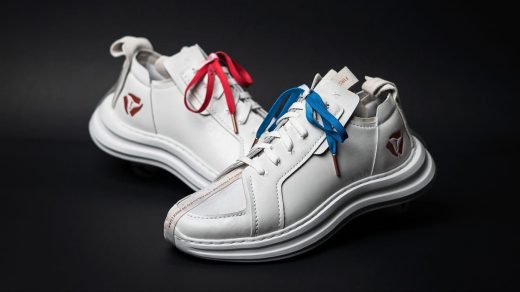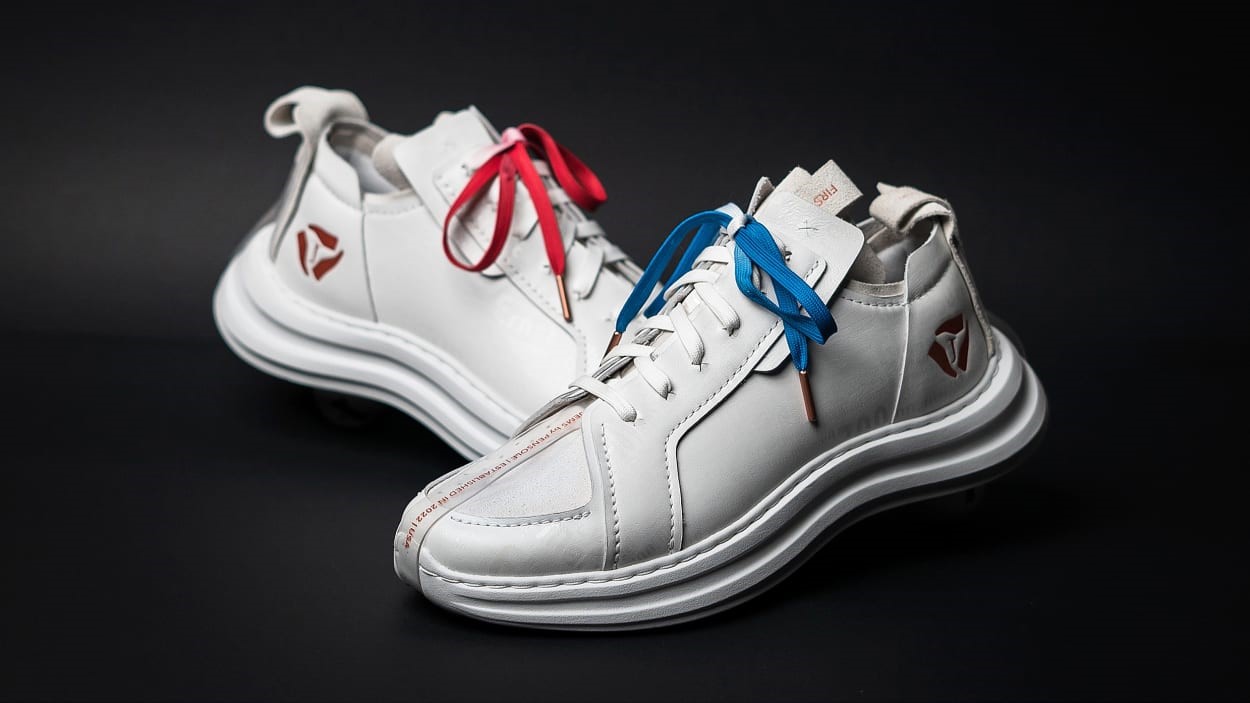A Black innovator gave us the modern shoe industry. Now, he has his own sneaker
To D’wayne Edwards, a prominent footwear designer, a sneaker isn’t just a functional object that allows you to walk or run with ease. It’s a canvas for telling a story.
Consider his latest creation, which features a black and white portrait on the sole. The picture is of Jan Ernst Matzeliger, a Black man who revolutionized shoemaking in the 1880s, but has largely been forgotten since. Edwards has used every possible touchpoint to tell Matzeliger’s story, right down to the tissue paper in the shoebox, which recounts his biography. A limited run of 915 shoes drop on DSW’s website today, September 15, which happens to be Matzeliger’s birthday.
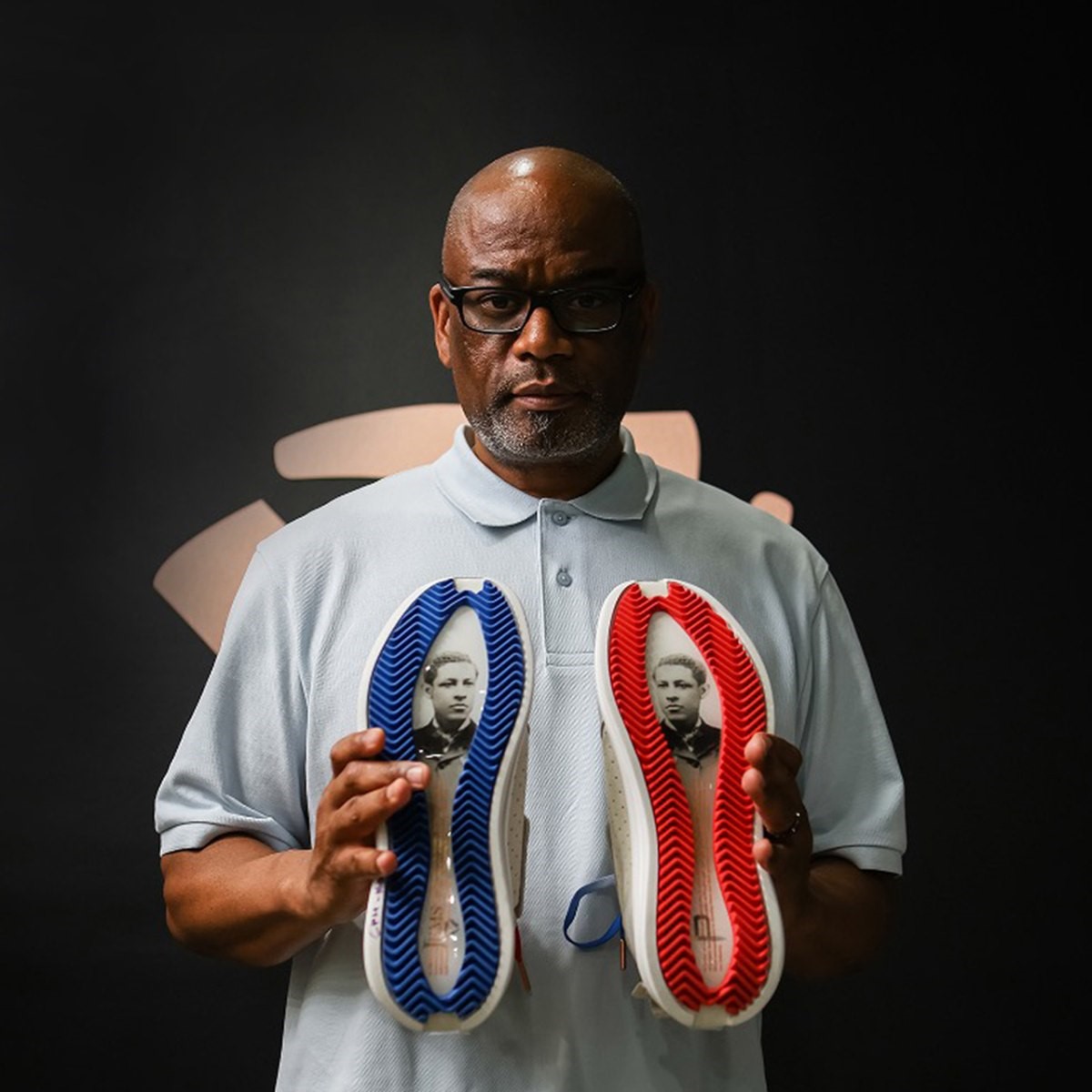
The Matzeliger tribute will be the first sneakers to roll off the assembly line of a new factory that Edwards has opened in New Hampshire, one of the only Black-owned footwear factories in the United States. The name of this new facility? JEM Studio (or JEMS), based on Matzeliger’s initials—and a playful homophone for “gems.”
Edwards is on a mission to ensure the next generation of shoe designers knows Matzeliger’s story. And he’s got their ear. Over the past decade, he has established two schools, the Pensole Academy in Portland, Oregon, and the newly opened Pensole Lewis Academy in Detroit, which which is free to admitted students and housed within Michigan’s only historically Black college. JEMS is an extension of Edwards’ passion for education, since it will offer students an opportunity to understand the craft of shoemaking here in the United States. More broadly, Edwards is committed to making sure that Black creatives have a bigger stake in the footwear industry. These new sneakers serve both purposes.
“In my former life, I designed shoes for professional athletes, creating products that tell their individual story,” says Edwards, who has spent three decades in the footwear business and was the former lead designer of the Jordan brand. “But being able to do this for a historical figure in our industry that people should know more about was very important to me.”
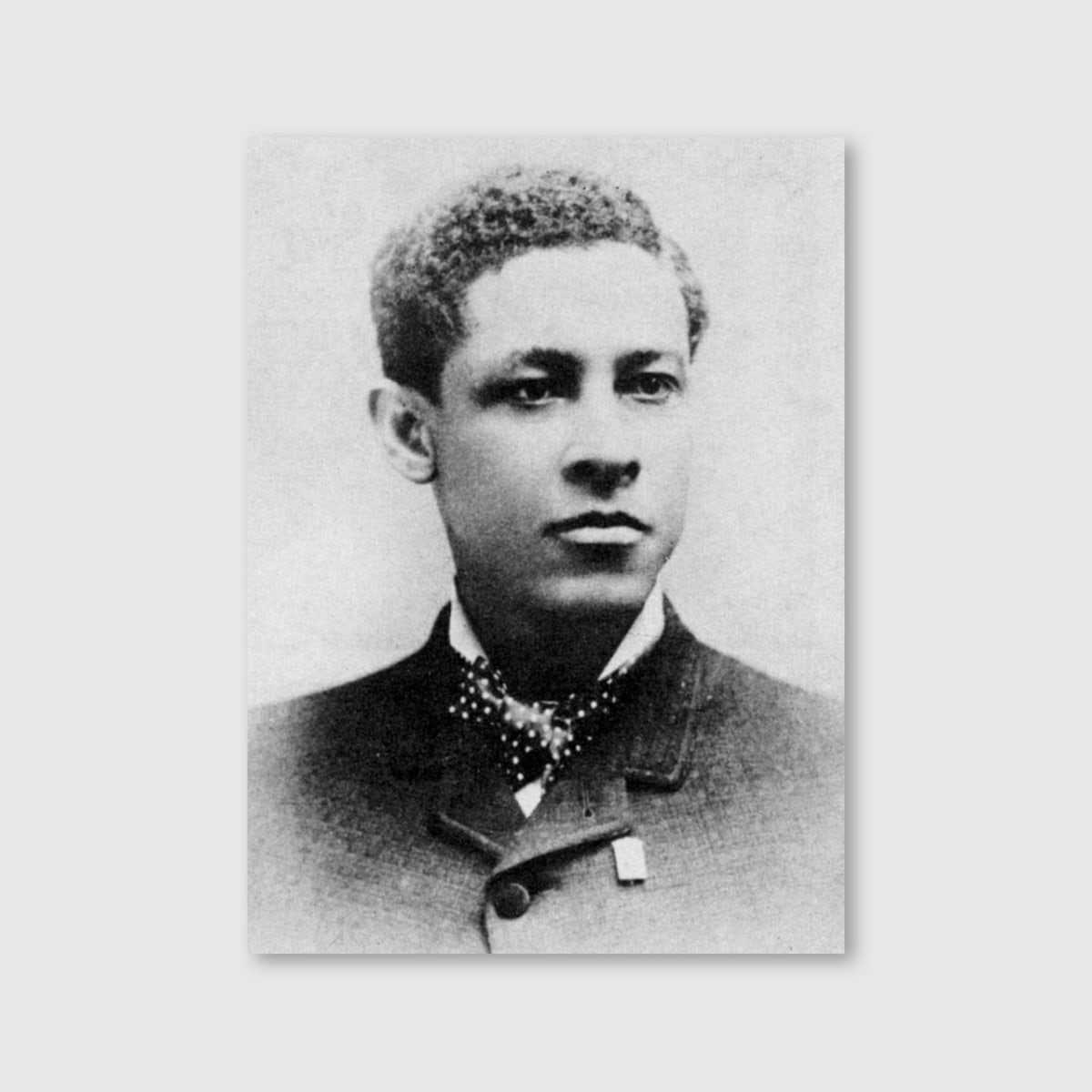
A forgotten innovator
Edwards first stumbled upon Matzeliger’s story early in his career, when he was designing for L.A. Gear, Nike and Jordan. It was shocking to him that Matzeliger wasn’t a household name. “I was embarrassed that I didn’t know this person existed,” Edwards says.
Matzeliger story is indeed remarkable. He was born in Suriname, in South America, to a Black woman who was enslaved by his Dutch father. At 19, he sailed to the United States on a merchant ship and settled in Philadelphia, where he learned to be a cobbler. He was so drawn to the craft of shoemaking that he moved to Massachusetts, then the hub of the trade.
Working in shoe factories, he observed how laborious it was to manually pull leather over the wooden mold of the foot, known as a last. He developed a lasting machine, which made the process so much easier and increased shoe production from 50 to 700 pairs a day. Within a few years, the lasting machine became the norm in shoemaking, and it became the foundation of modern, industrial shoe production. While Matzeliger patented this machine, he died of tuberculosis at 36, before he was able to see the transformative impact—and financial rewards—of his invention.
Edwards has sprinkled aspects of this story throughout the new shoe. The liner of the shoe features an image of the lasting machine taking directly from the patent. On the paper in the shoebox, Edwards tells this story with phrases like, “Father was his mother’s owner,” and “Dutch East Indies merchant ship.” The laces are red and blue to represent the American flag, and reflect that the shoes were made here in the United States.
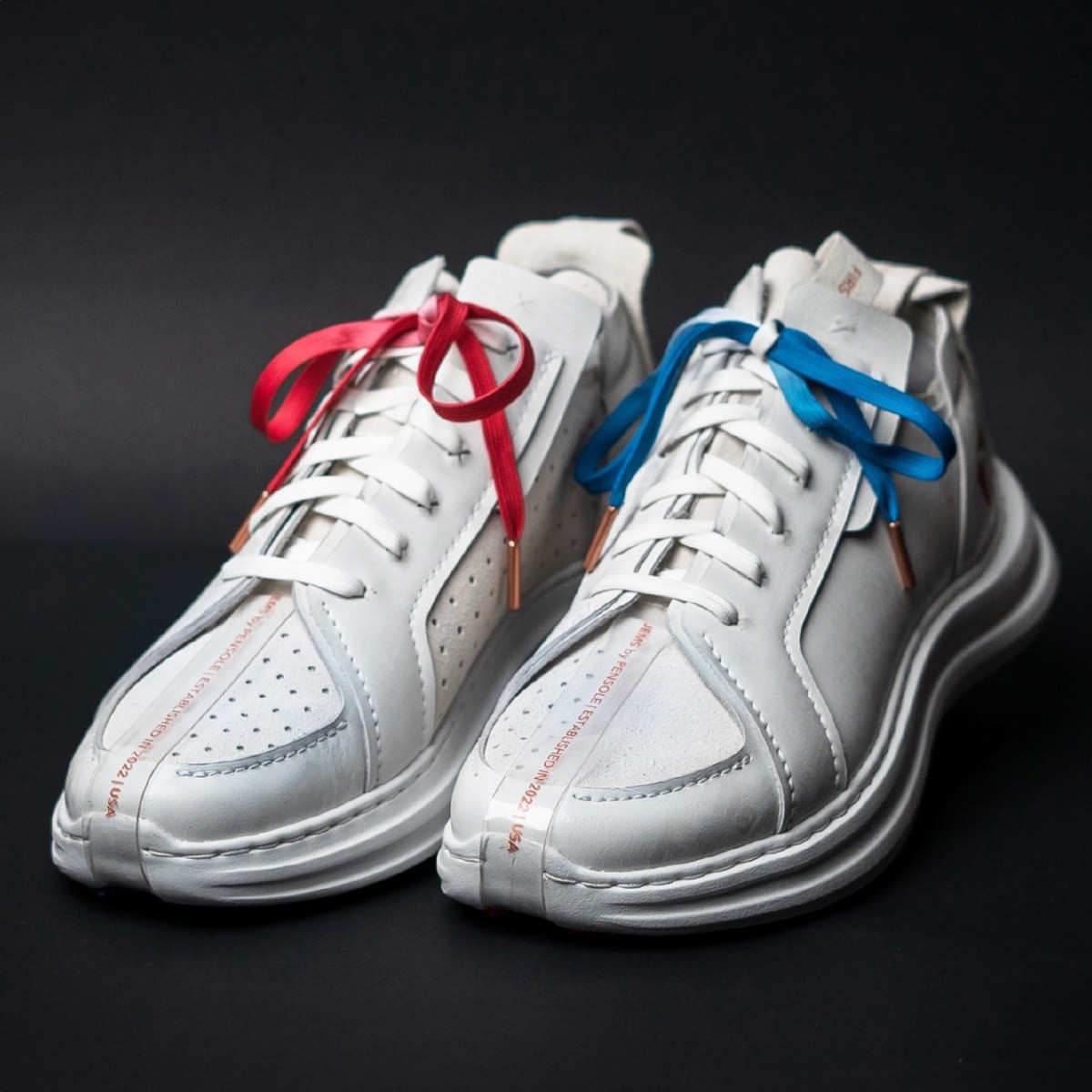
A Factory, Up and Running
It was no small feat to open the JEMS factory in Somersworth, New Hampshire. While the United States was once a global hub of shoemaking, much of this manufacturing has now shifted overseas to Asia. But Edwards believes that having a domestic factory is crucial to helping advance shoe design in the United States.
For the past decade, Edwards devoted himself to training the next generation of American shoemakers, which a specific focus on empowering Black creatives, who make up only 4.8% of all designers. Last year, Edwards helped revive Detroit’s Lewis College, a historically black college that had shuttered in 2013 due to financial pressures. He chose it as the site of his second school, now named Pensole Lewis College, which creates a pipeline for Black students to become designers. Edwards has brought in corporations to sponsor programs, so admitted students don’t need to pay for classes or for room and board.
Last year, DSW invested $2 million into Pensole, which enabled Edwards to launch the JEMS factory. The idea is to give students an opportunity to see the shoe manufacturing process up close, which might influence how they design shoes in the future. From the perspective of Bill Jordan, president of Designer Brands (DSW’s parent company), supporting Black shoe designers isn’t just about creating equality; it’s good for business. “By investing in new and different talent, these new designers are going to bring different design to footwear, and we’re going to be able to offer that to our customers,” he says. “They will have access to newer, fresher stuff.”
Edwards says that creating the factory was difficult, largely because it was hard to find Americans with the expertise required. But he and his team slowly found artisans who were willing to learn the ropes. “Making footwear is a generational craft,” says Edwards. “You need people who can actually sew and who have a passion for craftsmanship.”
Now that the factory is up and running, it is going to allow Pensole students and graduates to see their shoe designs transformed into real, physical products. Bill Jordan, for instance, is looking forward to placing orders for exciting new sneakers at JEMS. “These students are going to have an opportunity not just to sketch out a shoe, but eventually make shoes in this factory, which will appear on the shelves of our stores,” he says.
(6)

